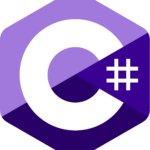Hire remote Xamarin developers that you can trust
Hire Xamarin developers from a unique network of 50,000+ pre-vetted offshore talents from Europe and Latin America, looking for a full-time contract. YouTeam developers stand apart for their ability to think like product managers and act like software architects. We also manage everything, so there’s zero overhead for your company.
Hire developers
20 best Xamarin developers for hire on YouTeam in November 2024

Federico
Mobile Developer

Santiago
Mobile App Developer

Luis
Mobile Developer

Carlos
Senior Software Developer

Thiago Henrique
Xamarin Mobile Developer

Victor Hugo
Xamarin and .NET MAUI Developer

Roberto
Software Developer

Oscar
Senior Software Engineer

Cristian
Software Engineer

Jesús
Mobile Developer
Start hiring to
see all talent
Hire
developers

Best Developer
Mobile Developer
Trusted by Fortune 500 companies and Y Combinator startups
Why hire Xamarin developers with YouTeam
 48-hour personalized matching
YouTeam handpicks the best-matched candidates.
48-hour personalized matching
YouTeam handpicks the best-matched candidates.
 Zero overhead
Locally-compliant contracts and billing
Zero overhead
Locally-compliant contracts and billing
 Dedicated white-glove support
Dedicated white-glove support




How to hire Xamarin developers with YouTeam
Share your requirements Set up a quick call with one of our Matching Experts — your dedicated contact at YouTeam.
Undergo Personalized Matching Your Matching Expert curates a candidate list, conducts pre-interviews, and ensures a perfect match for your needs—covering developers' skills, tech stack preferences, interests, and personality.
Meet the right candidates Review a list of candidates screened specifically for your request and pick the best for the interview stage. Average interview-to-hire ratio on YouTeam platforms: 1.75.
Hire and work with confidence YouTeam automates contract signing and invoicing through its secure system. Your dedicated Matching Expert stays with you throughout the collaboration with contractors.


Find developers skilled in related technology
More technologies
About Xamarin
- What is Xamarin?
- Top use cases for Xamarin in mobile development
- Xamarin tech stack: Key components
- What is the role of a Xamarin developer?
- Xamarin developer experience levels
- Tasks and responsibilities of Xamarin professionals
- Skills to look for in a Xamarin developer
- Types of Xamarin developers: freelancers, in-house engineers, and outsourced programmers
- How to write the Xamarin developer job description?
- Hiring Xamarin professionals: Hard skills assessment questions
Xamarin is an open-source platform for building cross-platform mobile applications using C# and .NET. It allows developers to create apps for iOS, Android, and Windows with a shared codebase, reducing development time and effort. By leveraging native APIs, Xamarin ensures that apps maintain native performance and user experience while simplifying the maintenance of apps across multiple platforms. It’s widely used for enterprise applications and provides seamless integration with Visual Studio, making it a powerful tool for .NET developers.
By using Xamarin’s cross-platform tools and integration with Microsoft’s ecosystem, developers can build mobile applications for both iOS and Android from a single codebase, reducing duplication of effort while maintaining consistent performance across platforms. Here are the essential use cases for Xamarin in mobile development:
1. Cross-Platform Mobile App Development
Xamarin is ideal for building mobile apps that need to run on both iOS and Android with a shared codebase. Developers can reuse up to 90% of the code across platforms, streamlining development and maintenance.
2. Enterprise Applications
Many businesses use Xamarin to create internal enterprise applications that need to function across different devices and operating systems. It helps deliver uniform functionality and user experience on both Android and iOS.
3. Native-Like Performance
Xamarin allows developers to build apps with near-native performance using platform-specific APIs, which is crucial for applications that require high responsiveness, such as gaming apps or apps with intensive data processing.
4. Wearable and IoT App Development
Xamarin is also used to build apps for wearables (such as Apple Watch or Android Wear) and IoT devices, leveraging its ability to integrate with device-specific functionalities.
5. Mobile E-commerce Apps
Xamarin provides a strong platform for building e-commerce applications that require smooth performance and a native-like experience on multiple platforms while keeping the development process efficient.
Here are the core components of the Xamarin tech stack:
1. Xamarin.Forms: This is the primary UI toolkit for building cross-platform applications with a shared user interface. Xamarin.Forms enables developers to write a single UI codebase that works across both Android and iOS platforms, reducing the amount of platform-specific development.
2. Xamarin.iOS and Xamarin.Android: These are platform-specific libraries that provide access to native APIs. They allow developers to write platform-specific code when necessary, offering more control over app behavior and performance for each platform.
3. C# and .NET: Xamarin is built on the .NET framework and primarily uses C#. This enables developers to write both the application logic and business logic using a single language, simplifying the development process.
4. XAML (Extensible Application Markup Language): XAML is used in Xamarin.Forms to define user interfaces in a declarative way. It separates the UI design from application logic, providing a clean structure and maintainable code.
5. Visual Studio: The preferred Integrated Development Environment (IDE) for Xamarin development, Visual Studio supports debugging, testing, and deployment, offering a comprehensive toolset for building Xamarin applications. It integrates seamlessly with Xamarin, enabling cross-platform development from a single IDE.
6. NuGet Packages: Xamarin supports the use of NuGet packages, which allow developers to easily integrate third-party libraries and components into their projects. These packages help extend the functionality of the application, adding features such as APIs, UI components, or database connectivity.
A Xamarin developer is responsible for designing, developing, and maintaining cross-platform mobile applications using the Xamarin framework. They utilize C# and the .NET framework to create user interfaces and implement application logic that functions seamlessly on both iOS and Android platforms. In addition to writing code, Xamarin developers collaborate with designers and project managers to ensure that the app meets user requirements and adheres to best practices in mobile development. They also troubleshoot and debug applications, optimize performance, and stay updated with the latest advancements in mobile technology and the Xamarin ecosystem.
Xamarin developers can be categorized into three primary experience levels: junior, mid-level, and senior, each reflecting varying expertise and responsibilities.
Junior Xamarin Developers
Experience: 0-2 years
Skills: Familiarity with C# and the basics of the Xamarin framework, as well as an understanding of mobile development principles. Junior developers typically work under the guidance of more experienced team members, focusing on simple tasks and learning best practices.
Mid-Level Xamarin Developers
Experience: 3-5 years
Skills: A solid understanding of C# and advanced knowledge of the Xamarin framework, including experience with UI design, RESTful APIs, and third-party libraries. Mid-level developers can independently manage projects, contribute to code reviews, and collaborate effectively with cross-functional teams.
Senior Xamarin Developers
Experience: 5+ years
Skills: Extensive expertise in C# and the Xamarin ecosystem, along with proficiency in mobile architecture, performance optimization, and integration with cloud services. Senior developers often lead projects, mentor junior and mid-level developers, and are responsible for high-level architectural decisions and project management.
Xamarin developers’ responsibilities often include:
1. Application Development
Xamarin developers design and build cross-platform mobile applications using C# and the Xamarin framework. They focus on creating user-friendly interfaces and ensuring seamless functionality across iOS and Android devices.
2. Code Maintenance and Optimization
Regularly updating and optimizing existing code is crucial. Xamarin developers identify performance bottlenecks, refactor code, and implement best practices to enhance application efficiency and responsiveness.
3. Collaboration with Cross-Functional Teams
Working closely with designers, product managers, and quality assurance teams, Xamarin developers ensure that project requirements are met and that applications align with user needs and business goals.
4. Integration of APIs and Third-Party Libraries
Xamarin developers are responsible for integrating various APIs and libraries into applications to enhance functionality. This may involve working with backend services, cloud platforms, and third-party SDKs.
5. Testing and Debugging
Conducting thorough testing to identify and fix bugs is a critical task. Xamarin developers write unit tests, perform regression testing, and utilize debugging tools to ensure application reliability and performance.
6. Documentation
Maintaining clear and comprehensive documentation is essential for future development and team collaboration. Xamarin developers document code, design patterns, and application workflows to facilitate knowledge sharing.
7. Staying Updated with Industry Trends
The mobile development landscape is constantly evolving. Xamarin developers are expected to keep abreast of the latest trends, tools, and updates within the Xamarin ecosystem and mobile development best practices.
A well-rounded skill set not only allows developers to leverage Xamarin’s capabilities effectively but also fosters collaboration and problem-solving—key elements that drive successful app delivery. Here are key skills to consider when hiring a Xamarin developer:
1. Proficiency in C# and .NET Framework
A solid understanding of C# and the .NET framework is crucial, as these are the primary languages and tools used in Xamarin development.
2. Experience with Xamarin.Forms
Familiarity with Xamarin.Forms allows developers to create cross-platform applications with a single codebase, enhancing efficiency and reducing development time.
3. Knowledge of Mobile App Development
A strong grasp of mobile application architecture, design patterns, and user experience principles is vital for creating intuitive and responsive applications.
4. API Integration Skills
The ability to integrate RESTful APIs and third-party libraries is essential for enhancing app functionality and ensuring seamless communication between front-end and back-end systems.
5. Testing and Debugging Expertise
Proficiency in testing frameworks and debugging tools is important for ensuring code quality and application reliability.
6. Familiarity with Version Control Systems
Experience with version control systems, such as Git, helps developers manage code changes efficiently and collaborate effectively within a team.
7. Problem-Solving and Analytical Skills
Strong problem-solving abilities and analytical thinking are critical for identifying and resolving technical challenges during development.
8. Communication and Teamwork
Good communication skills and the ability to work collaboratively in a team environment are essential for successful project execution and alignment with project goals.
When looking to hire Xamarin developers, you generally have three main options: freelancers, in-house engineers, and outsourced programmers.
Freelance Xamarin Developer
You can hire freelance Xamarin developers on various freelance platforms. Freelancers typically work on short-term projects and are not tied to any company, making them a good option for organizations with small budgets or limited project requirements. Freelancers are suitable for projects that don’t require advanced technical skills or long-term involvement. However, it can be challenging to find a skilled Xamarin developer who meets all your needs. Freelancers often lack the experience and problem-solving abilities required for more complex projects, as many experienced developers work with reputable companies on larger, more interesting mobile applications.
In-House Xamarin Engineers
If you’re developing the core of your software or looking for Xamarin developers who are highly dedicated to the development process, in-house engineers are the right choice. In-house developers typically offer better quality work than freelancers, as they are more invested in delivering a high-quality product. They can also contribute to idea generation and optimization, improving how your product meets scalable mobile application needs. However, hiring in-house engineers can be expensive due to additional costs like bonuses and providing access to necessary project management tools and testing frameworks.
Outsourced Xamarin Developers
Outsourcing allows you to hire Xamarin developers through development agencies or outstaffing platforms like YouTeam. This option can complement your existing development team or serve as an independent group. Outsourcing is ideal for filling roles quickly, as you can find the best candidates in less than two days with certain platforms. If your project requires the same level of technical skills and frontend development expertise as your in-house team, the outsourcing or outstaffing model can be a cost-effective solution for scaling up your mobile application development.
By choosing the right type of Xamarin developer, you can tailor your team’s structure to fit your project needs, budget, and long-term goals, ensuring a successful development process.
Here’s a structured approach to help you draft a clear and compelling job description:
1. Job Title: Start with a clear job title, such as “Xamarin Developer” or “Mobile App Developer (Xamarin)”.
2. Job Summary: Write a brief summary that highlights the role’s primary responsibilities and its importance to the company. For example, mention that the developer will be responsible for building cross-platform mobile applications using Xamarin, improving user experiences, and collaborating with other team members.
3. Key Responsibilities:
- Design and develop mobile applications using Xamarin for both iOS and Android platforms.
- Collaborate with product managers, designers, and other developers to define app features and functionality.
- Optimize applications for maximum speed and scalability.
- Conduct unit testing and debugging to ensure high-quality code.
- Maintain and enhance existing applications based on user feedback and analytics.
4. Required Skills and Qualifications:
- Proficiency in C# and .NET frameworks.
- Experience with Xamarin.Forms, Xamarin.iOS, and Xamarin.Android.
- Strong understanding of mobile application development best practices.
- Familiarity with RESTful APIs and third-party libraries.
- Knowledge of MVVM architecture and design patterns.
- Excellent problem-solving skills and attention to detail.
5. Preferred Skills (optional): List any additional skills that would be advantageous, such as experience with Azure DevOps, familiarity with cloud services, or knowledge of other mobile frameworks.
6. Experience Level: Specify the required experience level, such as “3+ years of experience in mobile app development with a focus on Xamarin.”
7. Work Environment: Briefly describe the work environment, whether it’s remote, hybrid, or in-office, and include any relevant details about the company culture.
8. Compensation and Benefits: Mention any salary range or benefits offered, such as health insurance, retirement plans, or professional development opportunities.
9. Application Process: Provide clear instructions on how to apply, including any required materials (resume, portfolio, etc.) and the application deadline.
Here are some advanced assessment questions tailored for evaluating the skills of experienced Xamarin developers:
What are the differences between Xamarin.Native and Xamarin.Forms, and when would you choose one over the other?
- Expected Response: Candidates should explain that Xamarin.Native (Xamarin.iOS and Xamarin.Android) allows for more control over platform-specific features and UI, while Xamarin.Forms offers a shared UI codebase for rapid development. They should provide scenarios where one might be preferable, such as performance-critical applications favoring Xamarin.Native.
How do you implement continuous integration and continuous deployment (CI/CD) for Xamarin applications?
- Expected Response: Candidates should discuss using tools like Azure DevOps, App Center, or GitHub Actions to automate the build and deployment process. They should cover aspects like automated testing, versioning, and deployment to app stores.
Explain how to implement deep linking in a Xamarin.Forms application.
- Expected Response: Candidates should describe setting up URL schemes and handling intents for iOS and Android, as well as using libraries or custom code to parse and route deep links within the app.
How would you manage state in a complex Xamarin.Forms application?
- Expected Response: Candidates should discuss various state management techniques, including using the MVVM pattern with data binding, Dependency Injection for services, and possibly state management libraries like Redux or Akavache for local storage.
What are the performance implications of using a large number of custom renderers in a Xamarin.Forms app?
- Expected Response: Candidates should acknowledge that while custom renderers provide flexibility, they can lead to increased complexity and potential performance issues. They should discuss strategies to minimize performance overhead, such as optimizing rendering logic and reducing unnecessary re-renders.
How do you implement dependency injection in a Xamarin.Forms application?
- Expected Response: Candidates should explain their approach to using dependency injection frameworks like Microsoft.Extensions.DependencyInjection or Autofac, discussing how to set up services, register them, and resolve dependencies in different parts of the application.
Discuss how you would handle localization and globalization in a Xamarin app.
- Expected Response: Candidates should describe using resource files for different languages, leveraging the CultureInfo class, and ensuring that the app adapts to cultural differences beyond just language, including formatting for dates, currencies, and more.
What strategies do you use for optimizing the app’s startup time in Xamarin?
- Expected Response: Candidates should provide insights into strategies like lazy loading of resources, reducing the number of startup tasks, optimizing images, and minimizing the use of synchronous initializations.
FAQ about Hiring Xamarin developer
Why choose YouTeam to hire Xamarin developers?
YouTeam offers access to a highly qualified pool of Xamarin developers, helping you scale your team quickly. Each developer is thoroughly vetted, ensuring their skills, experience, and reliability. With partnerships across 500+ development agencies and over 50,000 developers, you can receive qualified candidates within 48 hours, making it a fast and reliable solution for your hiring needs.
How does YouTeam vet Xamarin developers?
YouTeam follows a multi-stage vetting process. First, developers are sourced from trusted development agencies, ensuring they meet the necessary skill and experience requirements. Pre-screened candidates are then forwarded to clients for further interviews, allowing them to select the best fit based on specific project needs.
How much does it cost to hire the best Xamarin developers through YouTeam?
The cost of hiring Xamarin developers on YouTeam varies based on factors like expertise, location, and skills. On average, a Xamarin developer through YouTeam charges around $50 per hour, though rates can fluctuate depending on specific project requirements.
How quickly can you hire with YouTeam?
With YouTeam, you can hire developers faster than traditional methods. Here’s why:
1. Shortlist in 48 hours: Powered by our AI Matchmaker and human experts, we deliver a tailored shortlist of vetted candidates within just 48 hours.
2. Larger talent pool: As a marketplace, YouTeam offers access to a broader range of developers from hundreds of partner agencies, giving you more options than typical outsourcing agencies.
3. Seamless process: From the moment you request a call, our Matching Experts handle the rest, ensuring you quickly receive top-quality candidates who match your precise requirements.
With YouTeam, our clients have been able to build development teams within just a few weeks, not months.
What is the no-risk trial period for YouTeam developers?
1-Month Trial: You can terminate the engagement at any time during the first month.
Free Replacements: If you’d like to replace a contractor, we’ll do it within two weeks, free of charge.
You can learn more by reading our Money-Back Guarantee.
How is YouTeam different from freelance portals for hiring Xamarin developers?
Unlike freelance platforms, YouTeam connects you with developers from trusted software development agencies, not freelancers. This ensures that developers have the necessary technical and soft skills, along with relevant experience. If a developer needs to be replaced unexpectedly, YouTeam can quickly provide a substitute of equal skill to avoid project delays.
How do Xamarin developer salaries differ, and why?
Xamarin developer salaries vary significantly based on factors such as geographic location, experience level, and industry demand. In the United States, average annual salaries for Xamarin developers range from $90,000 to $130,000, with experienced professionals in major tech hubs like San Francisco and New York earning upwards of $150,000. This salary premium is driven by the high demand for mobile development skills, particularly in sectors like finance and healthcare, where advanced mobile applications are essential. Additionally, the cost of living in these urban areas contributes to the higher salary expectations.
In contrast, Xamarin developers in regions such as Eastern Europe or Latin America typically earn between $30,000 and $60,000 per year. These lower salaries are primarily due to the reduced cost of living in these areas, making it feasible for companies to access quality talent while keeping costs manageable.
Factors such as experience level, specific technical skills, and the nature of the projects can also influence salary ranges, with senior developers commanding higher pay due to their expertise and ability to lead complex projects.
Reviews
“It's just much more convenient to find a small team. I talk to one person, get 5 hand-picked CVs, interview candidates, hire the best ones – and I’m done!”
“Every time YouTeam sends me a list of potential developers, I am confident that I can interview pretty much anybody and they will be a good candidate.”
“The decision to use YouTeam was made by comparing them directly to the other candidates. As soon as I started talking to them, YouTeam adopted a hands-on approach. Time-wise, YouTeam also performed well.”
“We will definitely continue with them in the future. I’m so happy with their work that I’ve recommended them to my other company as well. There were no issues, it was really good. I gave a very loose brief, and the developer who worked for me had enough initiative to tighten it up by asking relevant questions. There was no messing around—it was done really well, with good, clean code.”
“YouTeam was very quick and responsive. I was presented with great candidates in just days, which was fantastic for me because we were looking to move fast. They had experience working on similar projects to exactly what we needed.”
“We wanted to boost our capacity for a period of six to twelve months. I decided to get a shot with YouTeam is that in any other place I can't say that I'm looking for a team of 5 developers with the possibility to scale. Now I returned to them again - this time for the confidence. If somebody is on the YouTube platform, you know that they've met a certain threshold of customer satisfaction, they've got a history of successful work elsewhere.”










